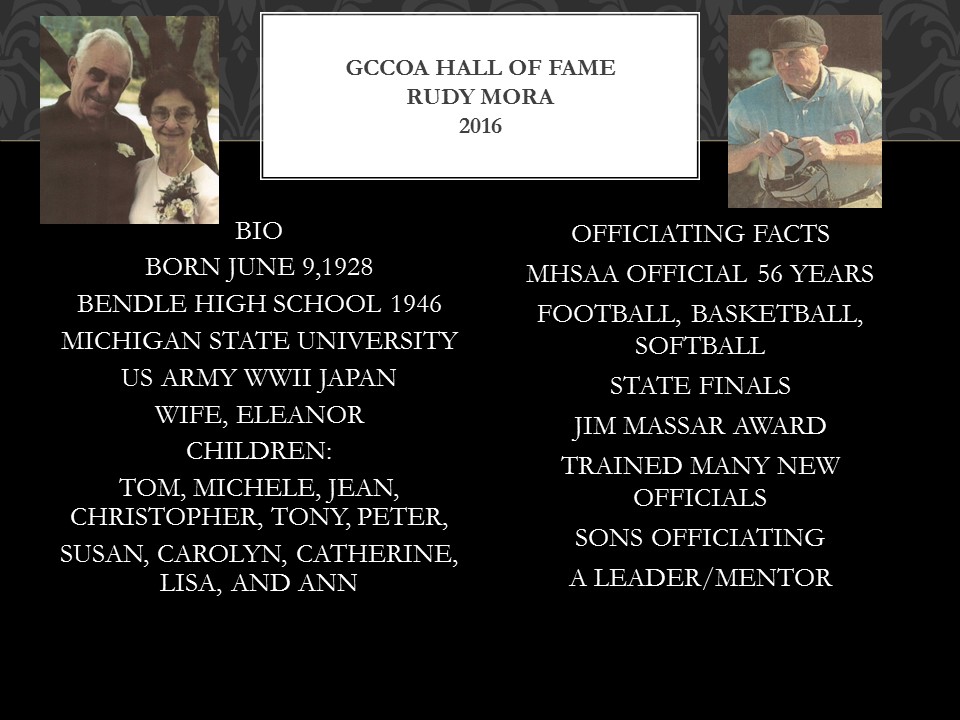
Rudy Mora Retires
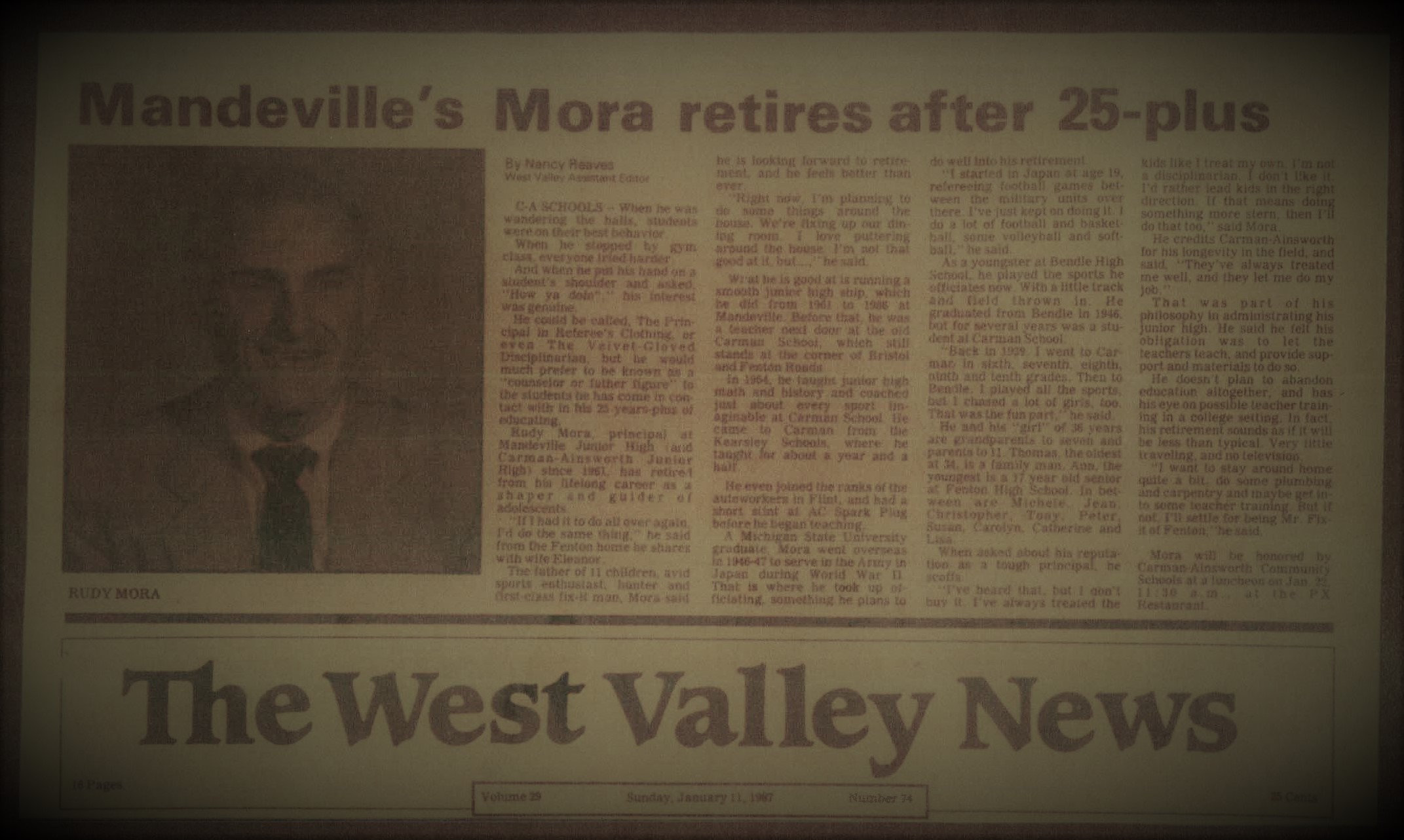
Meet Rudy Mora
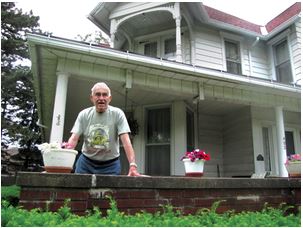
The Hawkeye of Shiawassee Avenue is perched high atop his nest, which in this case happens to be a large ornate home, circa 1878. This Hawkeye is Fenton resident Rudy Mora, who spends most of his time tending to his garden and scanning his street for any misdoings. He watches mostly from a swinging bench on his front porch, observing as cars and the occasional runner comes his way. Being a middle school principal and rearing 11 kids of his own, Mora knows a thing or two about keeping things in line, whether it is children, neighbors, or his own front lawn.
How involved are you with the St. John church? Not as much now as I get older. I can not do a lot of the things I used to. I did work on the funeral dinners. That was a lot of fun. I got to talk to people and serve them. I always found somebody I knew. That was a nice time. We had some good people. I would help with the cooking, but I am not a cook myself.
How long have you lived in Fenton? Since 1964, in the same home. This was built in 1878. I think we have a real fine-running town. Great police, great fire, the works keep everything clean. I am very particular about keeping my place neat.
I have heard there are a lot of Moras in town. How big is your family? I have 11 children and a wife that knows how to handle them. There are also Moras in Lake Fenton. I have 13 grandchildren, two great-grandchildren.
Tell me about your days as a principal. I was a principal at Ainsworth and Mandeville Middle School. It was great. I had a great job with a good bunch of teachers and kids. But, we believed in exposure at our school, teachers be seen, principals be seen. When classes would change there would be workers all over as a preventive measure. The kids were good because they knew they had to be with everyone around them. Schools can not be run like they used to be run because of the government.
They take over in discipline, order, curriculum. We did not have all the paperwork that teachers have today. It puts the teachers at a disadvantage. When they are doing all this paperwork, they cannot come up with anything novel or interesting or exciting. In the old days, teachers could take their kids outside to see or do something, just to move around. Being a principal taught me a lot about handling kids. I used to tell them I treated them like I did my own kids. If they needed a good chewing up I could do that. If they needed advice, I could do that too. I never spoke too much about religion. Whatever church they went to was their business, not mine.
Were you a teacher before you were a principal? I taught at Kearsley High School for two years and came right back to where I went to school, Mandeville. I taught there for five or six years, and I was principal for 25. I did not see much of a change in the kids there through the years, I think they might be a little freer now, but that is a consequence of parents bringing them up. If I saw somebody doing something wrong, I told them to stop and they stopped. People did not tell me what to do. My boss left me alone and I left the teachers alone as long as they had order and they were teaching. From what I hear, kids are less disciplined now without schools to intervene. But I have been out 20 years, I cannot be the judge of that. When I talk to some teachers today, they tell me that is so.
Now that you are retired what do you do with most of your time? Well, my body will only allow certain things. I have my garden, my yard, my flowers on my porch. I have good kids. My boy was here today. My girls bring dinner over every once in a while.
Do you have any other hobbies, past or present? Well, I was a sports official for over 50 years. I refereed football, basketball and girls softball. I learned that in the army. I volunteered, and sure enough I got the job.
What was your involvement in the army? I was a PFC, Private First Class. I served in the occupation of Japan, with Seventh Calvary Regimen. I also refereed in the service and played on the baseball team. We were champions the year I was there. We did not do any fighting. We traveled. It was easy occupation work. The Japanese were very cooperative. We were never in any danger. I met kids from all over on our team and squadron. I learned a lot about different sections of the country, states that have different dialects that help you tell where they are from. We were told to stay away from the food in Japan. But the army food was alright.
Photos
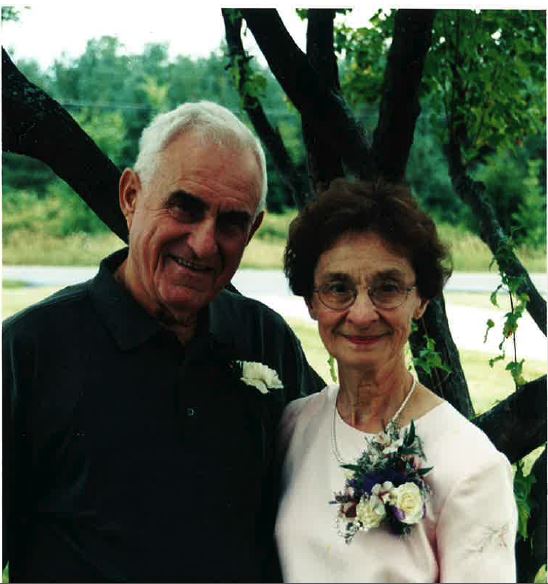
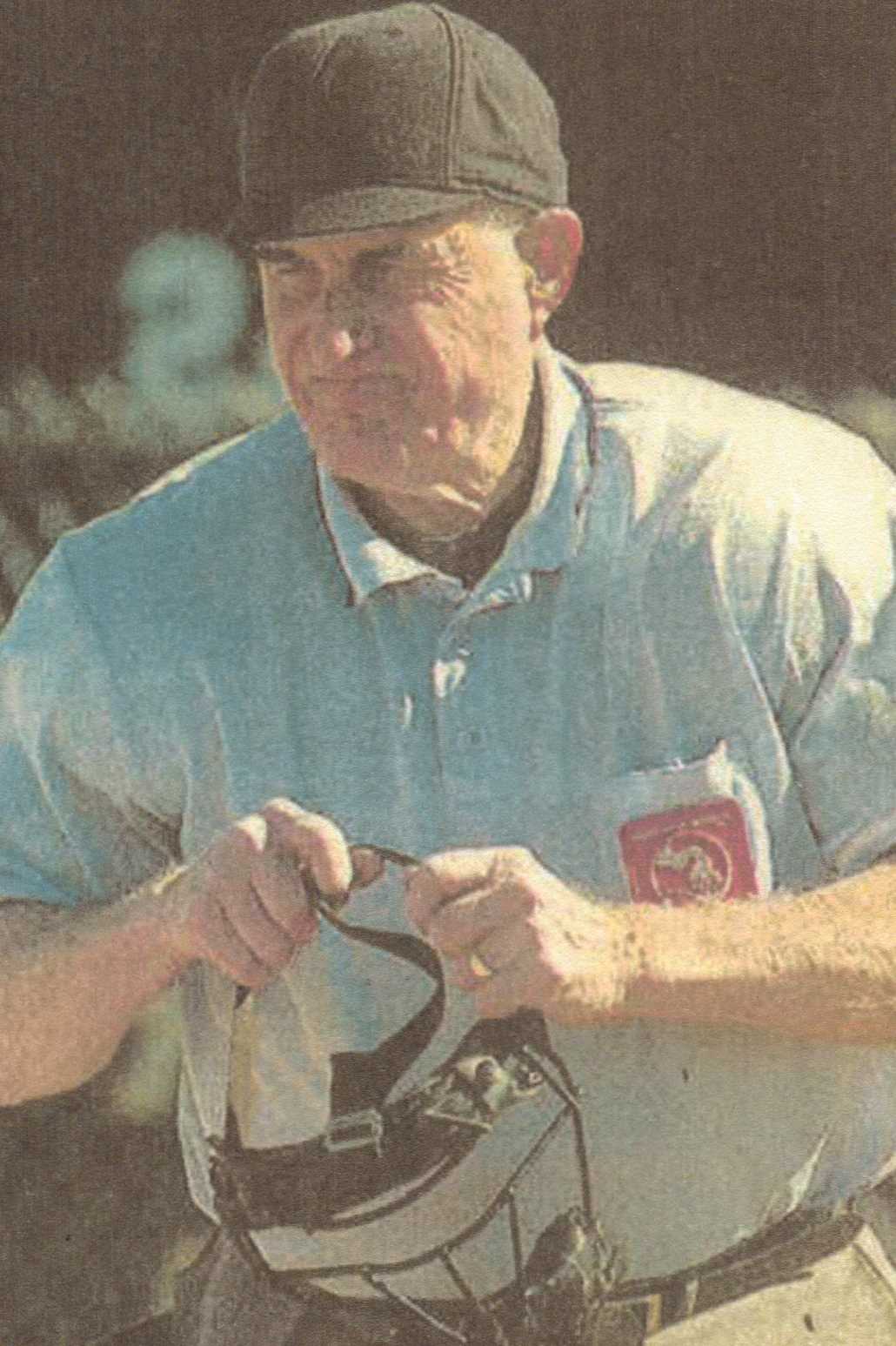
GCCOA Jim Massar Award
Rudy was awarded the GCCOA Jim Massar Award in 1993.